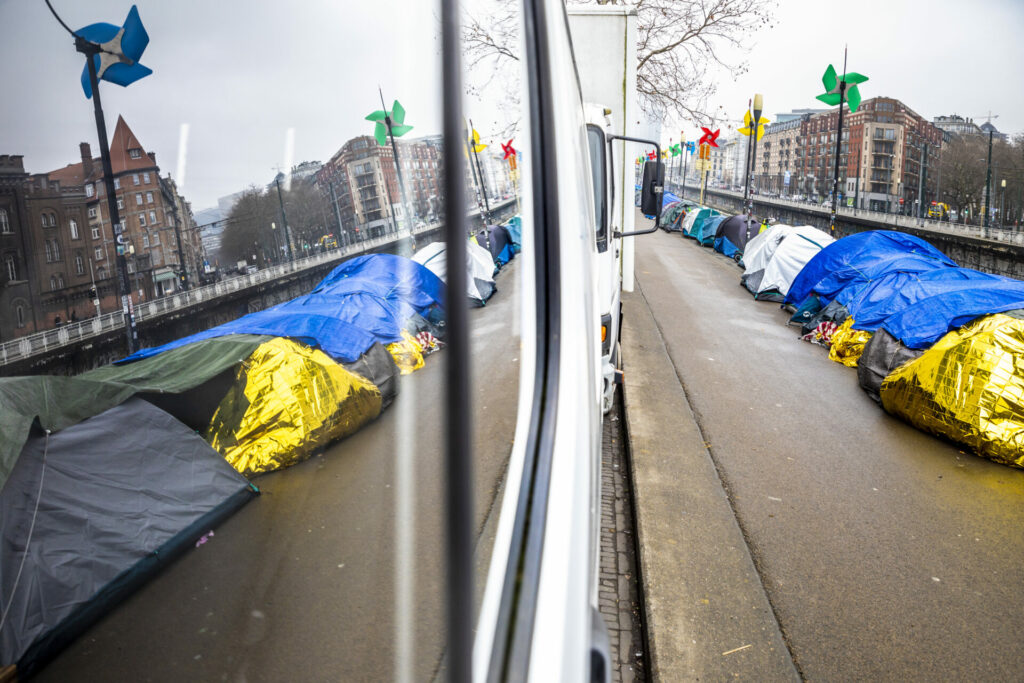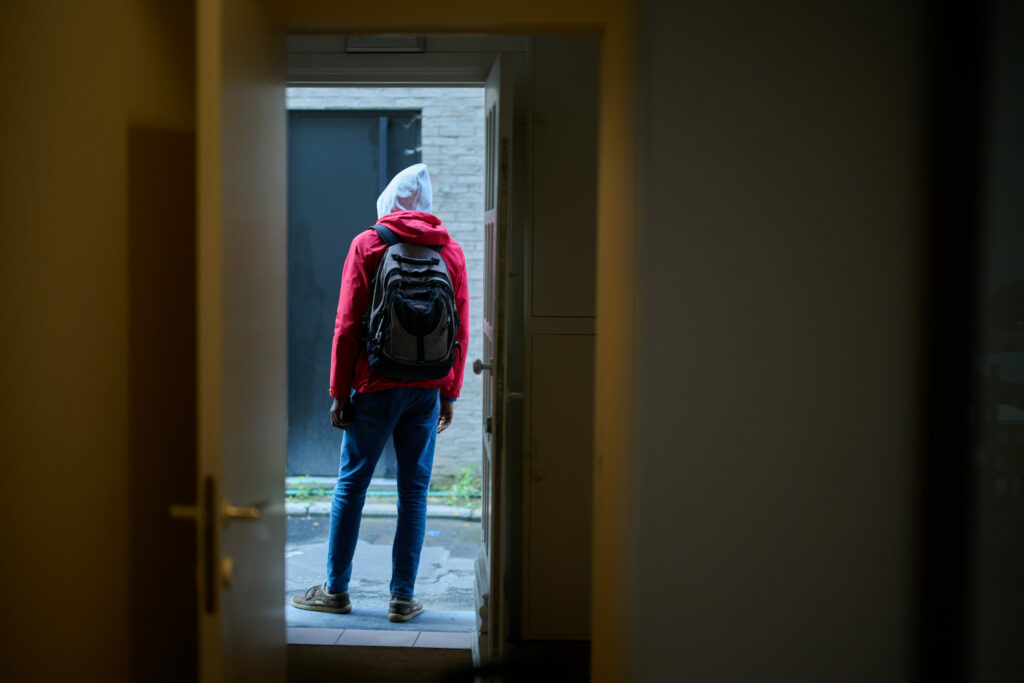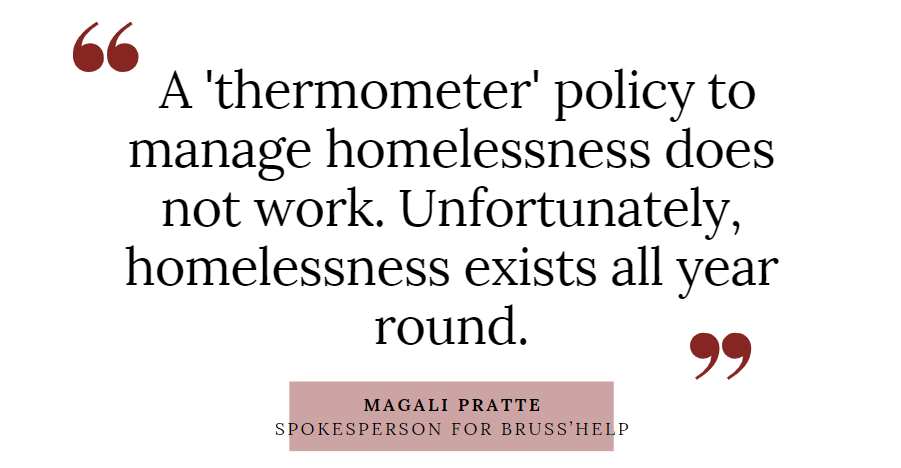With temperatures fluctuating and the Brussels authorities continuing to be in crisis management rather than finding long-term solutions, the homelessness sector fears that solutions will be pushed back until after the elections.
By the latest count, over 7,000 people are homeless or poorly housed in the Brussels-Capital Region. In the past two years, this number has increased steadily and the saturated homelessness support services are unable to meet the needs of those living in extreme precariousness.
"For years, we operated somewhat according to a 'thermometer' policy to manage homelessness. When it was cold, we opened extra places. When the weather was nice, we closed them again," Magali Pratte of the Bruss'help non-profit organisation told The Brussels Times.
Recently, however, the homelessness sector has started advocating for a paradigm shift to this idea of 'seasonal' management. "Unfortunately, homelessness exists all year round and we should not wait until it is extremely cold to open places."
Humanitarian need
Since last year, Bruss'Help has been working with a so-called "four-seasons plan," which provides year-round accommodation for over 5,100 people in centres, negotiated occupancy and integration hostels. Of those places, 3,266 are in emergency shelters, 1,024 in integration facilities, and 867 in temporary occupation of empty buildings.
"Ideally, we offer the same number of places throughout the year," Pratte said.
As temperatures dropped below zero in January and February, the Brussels-Capital Region activated the Extreme Cold Plan to create extra shelter. While any additional places were welcomed, Brussels poverty organisations called the plan nothing more than "a plaster on a bullet hole."
However, these shelters closed again at the end of April even though last month saw an unexpected cold snap that lasted over a week, with temperatures below 0°C on a few nights. Still, the Brussels authorities did not open extra places.
"The Extreme Cold Plan is activated specifically when several days of negative temperatures in a row are forecast, which is an emergency. There are risks of hypothermia and freezing to death, creating a real humanitarian need."

Lines of tents with homeless asylum seekers in front of the Petit Chateau Fedasil Arrival centre, in Brussels, February 2023. Credit: Belga/Hatim Kaghat
Still, people on the streets are at an increased risk of death – no matter the weather conditions. "There is no denying that the cold increases the risk. But it is very important to understand that the street kills, all year round."
Therefore, Pratte stressed the need for better structural solutions as the entire system is currently saturated, even if she fears that this will not happen anytime soon, considering the Capital Region's government coffers are almost empty after a five-year legislature.
"There is currently no budget planned to activate more places, and people are already being sent away from shelters because they are full," she said. "Every day, we refuse single men (as per State Secretary for Asylum and Migration Nicole de Moor's decision in summer 2023), but also families, women and children."
Master Plan
The organisations working with homeless people constantly report the fact that they have to send people away to higher-up levels, but without more budget, they cannot do more.
Last month, Bruss'help presented its 'Master Plan' to end homelessness in the Brussels-Capital Region by 2029, consisting of 35 measures spread across four stages, in collaboration with all relevant actors such as healthcare, the Justice Department, youth services, migration and police.
"Some people have been on the streets for 10, 15, 20 years. Today, we know that people tend to stay on the street for a longer period, with all the consequences that that has, both mentally and physically," Pratte explained.
A large part of the Master Plan is aimed at prevention: keeping people off the streets in the first place. The sector urges the Brussels Regional Government to (properly) moderate rent prices, fight against discrimination in the housing market and increase the overall housing supply.
Should people end up on the streets after all, steps must be taken to keep that period as short as possible. One of the measures would redefine emergency housing: two-thirds of the emergency accommodation currently in existence would become "transitional," giving quicker accession to a regular housing network for affected individuals.
"The solution must be structural. Now, we are constantly reacting to crises: first the Covid-19 crisis, the reception crisis, the Ukraine crisis, every year there is a winter crisis," Pratte said. "Only structural solutions will one day, I hope, allow us to truly escape homelessness."


